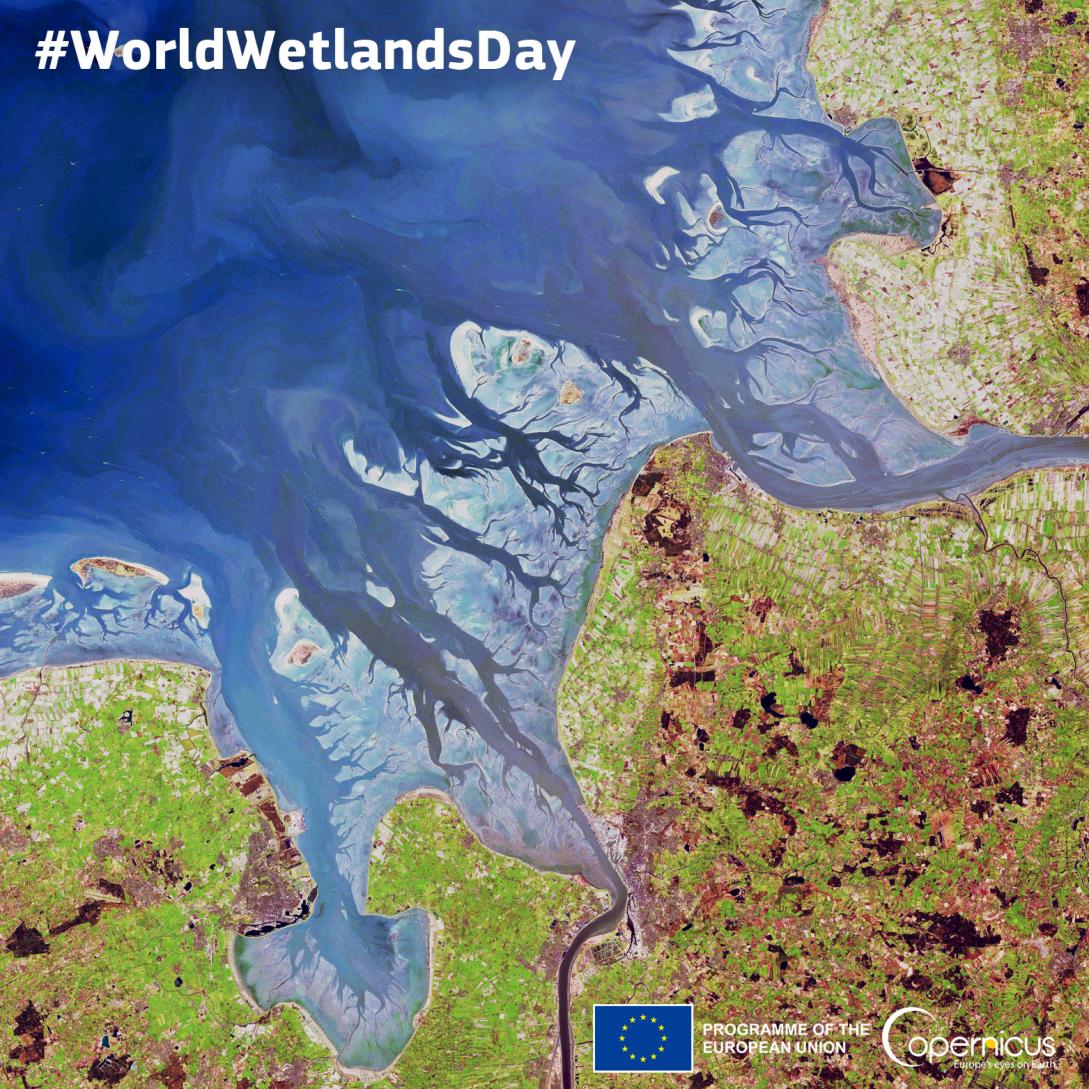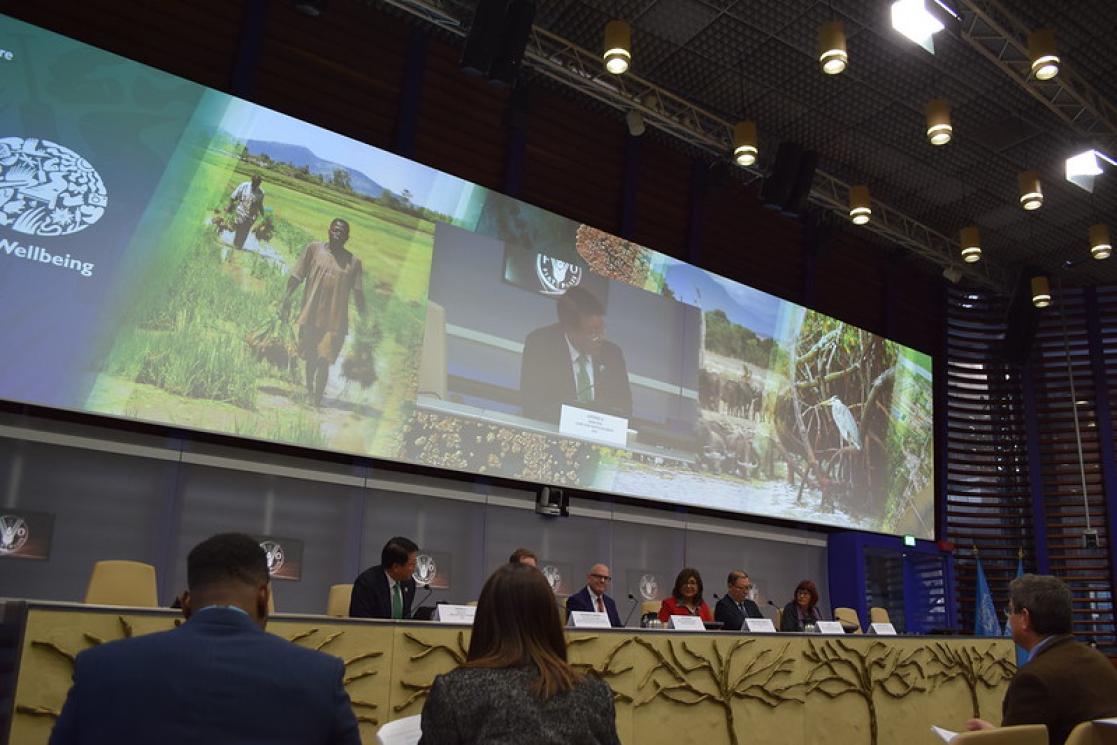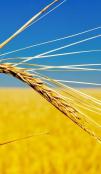WORLD WETLANDS DAY CELEBRATION 2024

by Ludovica Cutuli
On 2 February 2024, FAO hosted the World Wetlands Day Celebration focusing on the connections between wetlands and human well-being. The event served as a catalyst for global awareness on the importance of wetlands, rallying stakeholders to conserve and restore wetlands for the benefit of both humanity and nature.
Wetlands were acknowledged as vital for human survival, providing numerous ecosystem services, including food, biodiversity, flood control, and climate change mitigation. FAO Deputy Director General, Maria Helena Semedo, underscored the significance of wetlands in sustaining livelihoods, freshwater supply, and food security.

FAO
Despite their numerous benefits, wetlands face destruction from unsustainable agricultural practices, pollution, and further degradation. Wetlands have faced a 35% loss since 1970, vanishing three times faster than forests, while human-made wetlands, including rice paddy fields and reservoirs, increased by 236% during the same period. Land use change, particularly conversion to agriculture, emerged as a major driver of wetland degradation, prompting a commitment to create a better balance.
Conservation of wetlands was emphasized as a shared responsibility among stakeholders, policymakers, and practitioners. The Deputy Secretary-General of the Ramsar Convention, Jay Aldous, stressed the urgent need for FAO's leadership and expertise to actively address the loss and degradation of wetlands. Panelists emphasized the urgent need to address the impact of unsustainable practices, pollution, and climate change on wetlands, urging collective efforts to conserve and restore these vital ecosystems for the benefit of both nature and humanity. FAO announced the creation of an internal FAO Working group on Wetlands.





